Former Nissan Chairman Carlos Ghosn, who was awaiting trial on criminal charges in Japan, has confirmed speculations that he has fled the country and is in Lebanon. So far, there has been silence from Japan, probably embarrassed – even furious – as to how Mr. Ghosn could pull a stunning escape from the Japanese prosecutor and authorities.
Denying he was running away from a trial, the 65-year-old Ghosn declares – “I am now in Lebanon and will no longer be held hostage by a rigged Japanese justice system where guilt is presumed, discrimination is rampant, and basic human rights are denied. I have not fled justice – I have escaped injustice and political persecution.”
Mr. Ghosn was once considered the hero of the Japanese automotive industry for the last 20 years. After restructuring Renault through a cost-cutting plan in 1998-2000, he earned the nickname “Le Cost Killer.” His radical restructuring of the Renault – reducing workforce, revising production processes and pushing for new models – successfully contributed to the profitability of the company.
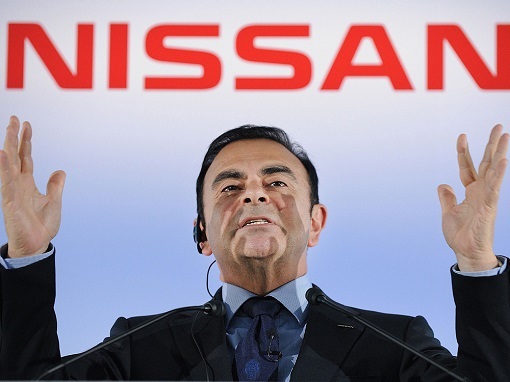
Later, after Renault and Nissan formed the Renault-Nissan Alliance in March 1999, Ghosn earned the nickname “Mr. Fix It” after architected the turnaround of Nissan from its near bankruptcy. From more than US$20 billion in debt, the Brazilian-French businessman reversed the Japanese carmaker’s sinking fortune to net profit of US$2.7 billion for fiscal year 2000.
Ghosn’s “Nissan Revival Plan” included his promise to resign if he fails to nurse Nissan back to profitability as early as fiscal year 2000 were not met. He was the fourth non-Japanese person to lead a Japanese automaker. He was so hard-working that Japanese media called him “7-Eleven”. His life story was turned into a superhero comic book series in Japan – “The True Story of Carlos Ghosn”.
However, everything turned upside-down when he was fired by the Nissan board in November last year. Not only was Ghosn fired as Nissan’s chairman, he was also arrested and was being held in a Tokyo detention centre, where only 30 minutes of daily exercise and two baths a week is allowed, not to mention fed basic rations of rice and “miso soup”.
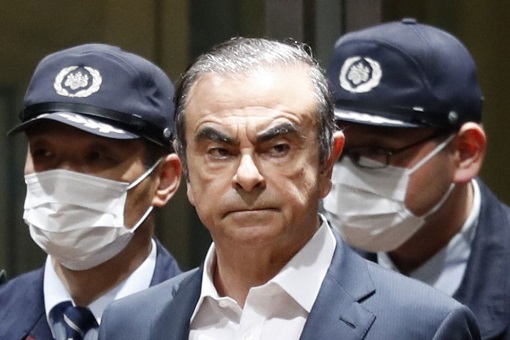
On Nov 19, 2018, Nissan revealed that a whistleblower had passed information about Ghosn and Representative Director, Greg Kelly, over to Nissan’s auditors who then began an investigation which would turn it into a scandal. Hiroto Saikawa, the Japanese automaker’s chief executive at that time, accused Mr. Ghosn and Mr. Kelly of committing financial misdeeds.
Nissan accused Carlos Ghosn and Greg Kelly of concealing more than US$327 million in payments to themselves and other executives – US$187 million in non-disclosed compensation and US$140 million in improper expenditures. Nissan CEO Hiroto Saikawa, the whistleblower, accused Kelly of being the“mastermind” behind Ghosn’s alleged misuse of Nissan funds.
The misappropriation of the company’s money included paying about US$100,000 a year to the older sister of Ghosn, even thoughshe did nothing for the company. Apparently, the payments to Ghosn’s sister, based on a contract for advisory work, began in 2002, a year after Ghosn took on the concurrent roles of CEO (Chief Executive Officer) and president at Nissan.
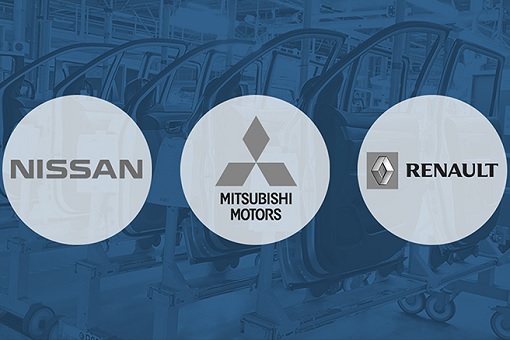
However, Carlos Ghosn claimed he is the victim of a conspiracy between Nissan executives, prosecutors and government officials to prevent him from further integrating the company with Renault. A Nissan-Renault-Mitsubishi alliance would create a powerful automaker that makes 1 of every 9 cars sold around the world, employing more than 470,000 people in nearly 200 countries.
Interestingly, Nissan, despite its bigger size – about 60% – and sells more vehicles than Renault, holds only a 15% non-voting stake in the French company, as does the French government. Renault, on the other hand, holds a much more powerful 43% shareholding in Nissan. Prior to the explosive scandal, France had been pushing for a full merger between Renault and Nissan.
Hence, the incredible escape of Carlos Ghosn from Japan has raised bigger questions than his scandal. Ghosn was not supposed to have been able to leave Japan in the first place. He was barred from traveling abroad as part of a US$13 million bail agreement which he struck while awaiting trial on his financial-misconduct charges.
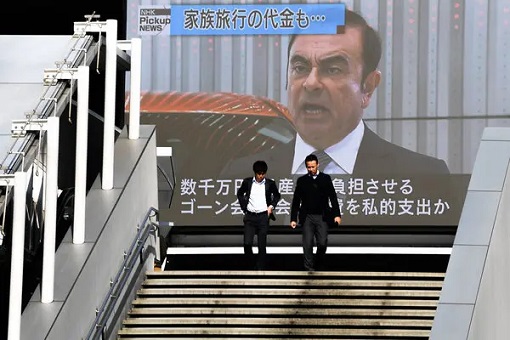
As one of Japan’s highest-profile criminal defendants, Ghosn’s home was under daily video surveillance and the use of his phone afnd computer was tightly restricted. His Japanese lawyer, Junichiro Hironaka, confirmed that he still has in his possession of Ghosn’s three passports, which he had surrendered after his arrest last Novermber.
The lawyer, who last saw Mr. Ghosn on December 25, said he was completely surprised by his client’s sudden departure. The former boss of Nissan holds French, Lebanese, and Brazilian citizenship. The attorney suggested that it would take a “big organization” to arrange Carlos Ghosn’s escape from Japan to Lebanon, his home country where he grew up from an early age.
Ghosn reportedly still has friends and family in Lebanon, as well as personal and business interests, including a vineyard he owns. His current wife and former wife are both from Lebanon. According to a report in Lebanese media, Al Joumhouria, Ghosn arrived at a Beirut airport via Turkey in a private jet. Lebanon has no extradition treaty with Japan, making it unlikely Ghosn can be forced to return to Japan.
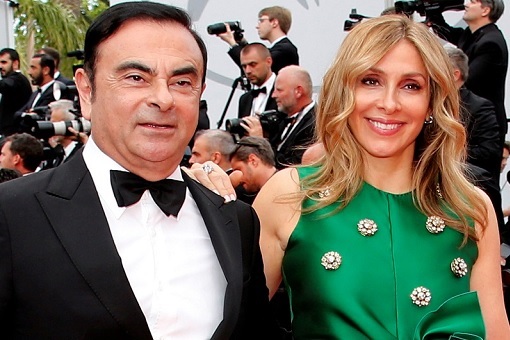
Data from the flight-tracking website Flightradar24 shows a private plane leaving Osaka, Japan, and travelling to Istanbul on the same day Ghosn leaves the country. To evade the Japanese authorities, Lebanese media and the Financial Times speculated that Ghosn might have hidden in a box meant for musical instruments to flee Japan.
According to Lebanese TV news channel MTV, the escape began when a Gregorian music band arrived at his home in Tokyo, where Ghosn has been held under house arrest. At the end of the performance, as the musicians packed up their instruments, Ghosn slipped into one of the larger cases and was smuggled to a small local airport, where a private plane was waiting.
Meanwhile, a Lebanese foreign ministry official told Reuters that Ghosn entered the country legally on a French passport and using his Lebanese ID with normal security procedures. The escape plan was, according to MTV, organised by Ghosn’s Lebanese wife, Carole, even though he has been prevented from seeing her without permission.
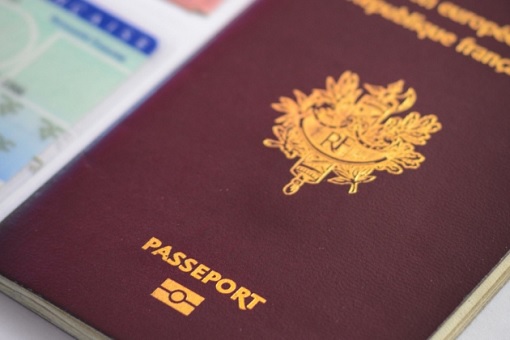
The ex-Nissan chief most likely had left Japan using a fake name because Japan’s public broadcaster, NHK, reported that officials had no record of Ghosn departing the country. Curiously, his escape came just a week after a visit to Beirut by Keisuke Suzuki, Minister of State for Foreign Affairs, who spent time with the Lebanese president and other officials.
There was also speculation that to evade Japanese authorities, Ghosn had travelled to a small rural Japanese airport where his face was less well known. He then left Japan by ferry and crossed to South Korea. Regardless of how he had escaped, most agree that he could not have engineered such a daring exit all by himself, or by his wife.
Japanese prosecutors would normally go to court when they already have a confession. In the case of Ghosn, however, they did not have one and has been under pressure to maintain their 99% conviction record. So, did the Japanese minister go to Lebanon with anticipation and knowledge that the former Nissan legend is about to flee the country?

The “escape of Ghosn” could solve quite a number of problems for the Japanese government. While the prosecutor will not have to prove their case anymore, the government would be spared the humiliation from the allegation that political motivations were behind the arrest of Carlos Ghosn, if the defence lawyers could show the slightest evidence that their client has been wrongly prosecuted.
If Ghosn does not appear on the first day of the trial, scheduled to be as early as April 2020, court proceedings are likely to be suspended. While he could insist that Japanese prosecutors, government officials and executives at Nissan “unlawfully colluded” to bring him down, Ghosn has become a fugitive instead of an innocent defendant willing to fight for his legitimacy.
Besides the French government, the Lebanese government has been very supportive of Ghosn since his arrest last year and said he represented “one of Lebanon’s success stories abroad”. After his escape, Carlos Ghosn was staying at a family home with wife Carole in Beirut’s upmarket Achrafieh neighbourhood, where private security guards and local police officers are standing guard.
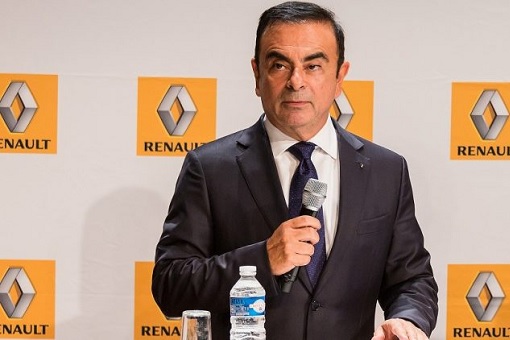
Other Articles That May Interest You …
- You’re Fired!! – Nissan Hero Carlos Ghosn’s Financial Scandal Exposes Bad Blood In Renault-Nissan-Mitsubishi Alliance
- If Proton Has The Quality Of Volkswagen Or Toyota, People Will Not Dump The National Cars
- Revealed – This Is How Much Profit Ferrari Makes For Every Sports Car It Sells
- China Geely Introduces Meritocracy – But Handicapped Proton “Bumiputeras” Aren’t Happy
- 80% Cheaper To Take Robo-Taxi – The Next Car You Buy Could Be Your Last
- Finally, Saudi Women Can Drive – Only Because They’re Needed To Boost Economy
- Leading The World – Volvo To Make Only Electric & Hybrid Cars From 2019
- Forget Driverless-Car, Singapore & Dubai Are Racing For “Flying-Taxi”
- Take A Look At 50 Corporations’ Amazing First & Present Logos
- You Kicked Me, I Chewed Your VW Jetta – A Dog’s Sweet Revenge

|
|
January 1st, 2020 by financetwitter
|


|

|

|

|

|

|




























Well written, as always !
Some people lead lives that seemed more spectacular than even those imaginary characters in fictions, hehe